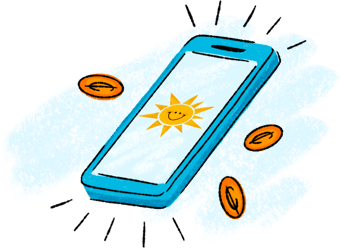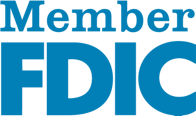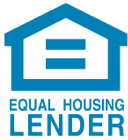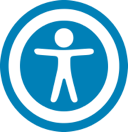If you're stashing your money under your mattress, in a drawer, a pay app, or your wallet, you are missing out big time on one of the best modern conveniences for managing your money. A bank account offers much more than just a place to store money.
Want to make a purchase while you're on the go? No problem! Need to pay a bill on the fly? You can do it! There are many options when it comes to banking. It's essential to choose the option with the most benefits for your needs and lifestyle. Before you start, check out these must-know tips for opening your first bank account.
What Does Your Bank Account Need to Do For You?
Take a moment to think about your lifestyle and what your ideal bank account should offer you. Did you land your first job and need a bank to securely deposit your paychecks? Or maybe you’re going off to college and need a convenient way of storing and spending your student loan money. There are a variety of reasons that influence your decision to open a bank account for the first time and it's important to ask what you need it to do for you.
Here are the 8 most common features a bank account offers:
1. Convenience
Checking or Spending accounts allow the user to pay by check, online bill pay, or debit card. A connected debit card allows for the withdrawal of money at ATMs and the ability to make purchases in-person, online, or over the phone. Some banks will even allow you to pay your bills using your debit card.
2. Security
Losing your money will have devastating consequences. The more money you lose, the more damaging the results. Banking institutions offer safety. Your money is automatically protected against theft and fires. Check to see if the bank is FDIC insured, meaning if the institution were to close or anything happened, you would receive your money back in full.
Note: The maximum amount that can be insured with any one account is $100,000.
3. Ability to Save
Stashing your money around your house does not make for an easy way to save money. It's not secure and way too accessible, making it easy to spend money with empty promises to replace it. Banks offer savings accounts that earn interest monthly. This puts your money out of sight, out of mind, and helps it grow over time.
4. Cash Checks For Free
Banking institutions that you hold an account with will cash or deposit an unlimited number of checks for free.
5. Hassle-Free Bill Pay
Forget the hassle of paying bills in person or getting a money order. You can pay bills online or through their app with a checking account. Unlike money orders, it's free and typically faster.
6. Transfer Money in an Instant
Easily transfer money between accounts or even to another person. Popular apps such as Zelle, Venmo, and Cash App all rely on users having a bank account. It's much cheaper than wiring money.
7. Easily Access Cash
Just because your money is sitting in a bank doesn't mean you can't access cash. Withdraw cash anytime you wish. If you use an ATM owned or partnered with your bank, then the transaction is free.
8. Access Credit
Holding accounts with a bank can help you obtain lines of credit and loans when needed. Banks prefer doing business with existing customers because they already have a rapport. Banks tend to have better interest rates and lower lender fees.
It is pertinent to note that every bank is different, and their account options vary. Some have better interest rates on savings accounts, while others have lower checking account fees. This is why it is crucial to prioritize the options that are most important to you.
Understanding and Choosing the Right Account Options
Everyone has different banking needs, so banks offer different account options. To get the most out of your banking experience, it is crucial that you choose the right options. Let's look at the most common options you will have to decide on.
Type of Account
What type of bank account is the best fit for you? The two most common types are checking and savings accounts. A checking account is designed for everyday spending. You can:
- Make purchases with a debit card or check
- Withdraw cash
- Pay bills
- Send or transfer money
On the other hand, a savings account is designed to save money. This kind of account typically limits the number of withdrawals per month and earns monthly interest to help your money grow.
Many people choose to open at least one of each since the minimum balances for opening the accounts are typically low.
Will You Open This Bank Account By Yourself or With Someone Else?
If you have a partner or are married, you may want to open a joint account that gives both of you equal access and rights to the account. If you do not want anyone else on there, you should choose an individual account.
Is Your Bank Account for Personal or Business?
If you plan on using the new account for business transactions (e.g., you own and operate a business), then the business route is the one you should take. However, you will want a personal account if it is for personal use.
What Kind of Financial Institution Fits Your Lifestyle?
There are four types of banking institutions, each with its pros and cons. Which one fits you best?
National Banks
National banks offer the convenience of many branches, an extensive ATM network, and robust mobile apps. However, they tend to charge the highest checking fees and the lowest interest rates for savings.
Regional Banks
Also known as community banks, this option is great for those who prefer a community feel and want access to a wide range of accounts. The downsides are that they tend to have some of the highest checking fees, lack an extensive ATM network, and either do not have mobile apps or have apps that lack robust functionality.
Credit Unions
Credit unions are known for very low or no checking fees and high savings interest rates. They also provide large ATM networks but lack robust mobile apps.
Online Banks
This option offers low or no checking fees, high-interest rates on savings accounts, large ATM networks, and cutting-edge mobile apps. Their downside is not having physical branches to visit. However, with the ability to do everything online or over the phone, many people never have a need to visit a branch.
Knowing what options you need ahead of time will help ensure you choose the perfect bank and type of account for your specific needs.
First bank account opening Requirements
Opening a bank account is a quick and easy process. There is some documentation you need to complete the process, but as long as you prepare these documents ahead of time, it should be smooth sailing.
Note: You must be 18 years of age or older to open an account by yourself. If you are under the age of 18, many institutions will allow you to put your name on an account with a parent or legal guardian.
The following documents are needed to open a bank account:
- Government-Issued Identification - This can be a driver's license, a state-issued ID, a valid passport, or a U.S. military identification card
- Social Security Card or Individual Taxpayer Identification Number - Either have your social security card on hand or have proof of your Individual Taxpayer Identification Number
- Proof of Address - This should be either a bill or a financial statement from another institution with your correct name and address (e.g., power bill, credit card statement, etc.)
Focus on Low or No Monthly Fee accounts
In this day in age, there is no reason why you should settle for high checking fees and low savings rates. There are banking institutions with minimal fees and valuable perks. Below are tips for ensuring you do not end up paying unnecessary fees:
- Choose an account that has overdraft protection to avoid overdraft fees
- Avoid ATM fees by choosing an institution with a large ATM network
- Look for an account with no monthly maintenance fees or reasonable ways to avoid them (e.g., make at least one direct deposit per month)
Know Your Rewards and Benefits
Most accounts come with rewards and benefits. For example, some banks offer no overdraft fees or the ability to offer interest on a checking account. Make sure the rewards benefit you. If they do not, they are of no value to you, and you may want to search for a better option. Many people forget about their rewards and lose out on valuable benefits, so make sure to monitor and take advantage when you can.
How to open first bank account
Start by researching different banks and their account offerings. Look for banks that align with your priorities, whether it's low fees, high interest rates, or convenient access to ATMs. Read reviews and ask for recommendations from friends and family to get a sense of each bank's reputation and customer service.
Once you've narrowed down your choices, it's time to sign up. Many banks offer the option to open an account online, which is convenient and efficient. However, if you prefer a more personal touch, you can visit a branch and speak with a representative who can guide you through the process.
When signing up, make sure to have all the necessary documents ready. Bring a government-issued identification, such as a driver's license or passport, along with your social security card or individual taxpayer identification number. Additionally, have proof of your address, such as a bill or financial statement, to verify your residency.
During the application process, pay attention to any rewards and benefits that the bank may offer. Some banks provide perks like no overdraft fees or cashback rewards on certain purchases. Make sure to review the terms and conditions to understand how you can take advantage of these benefits.
Once your account is open, it's time to start making the most of it. Take advantage of the convenience of online banking and mobile apps to manage your finances on the go. Set up automatic bill payments and direct deposits to streamline your financial responsibilities. And don't forget to monitor your account regularly to stay on top of any fees, rewards, or changes that may occur.
A Modern Approach to Banking
Banking accounts are priceless when it comes to managing and saving money. Gone are the days of only having the local institutions in your area to choose from. Online banking is taking the world by storm for its convenience, minimal fees, perks, and robust mobile apps. mph.bank is packed with rewards, offers the highest level of security, no overdraft fees, minimal to no monthly fees, and so much more. In just a few minutes you can join mph.bank and start your banking journey today!
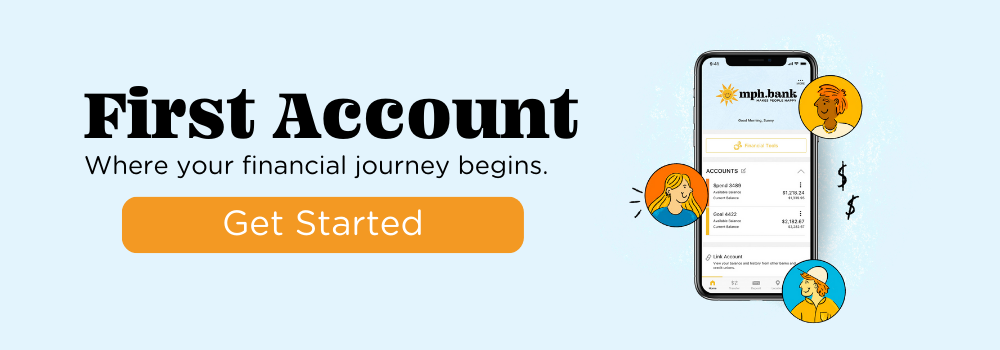
What do fish use as currency to purchase anything?
Sand Dollars! Sign up to receive important information on banking, financial tips, and jokes like this directly to your inbox

